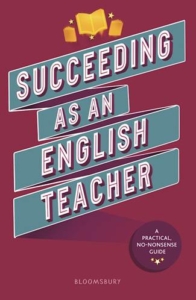


Our team sorts through all blog submissions to place them in the categories they fit the most - meaning it's never been simpler to gain advice and new knowledge for topics most important for you. This is why we have created this straight-forward guide to help you navigate our system.


And there you have it! Now your collection of blogs are catered to your chosen topics and are ready for you to explore. Plus, if you frequently return to the same categories you can bookmark your current URL and we will save your choices on return. Happy Reading!
The mainstay of most GCSE exams is the short-text question. For our new GCSE Practice Exams, we have developed a free-text marking engine that is robust enough to deal with real GCSE questions and, more importantly, real students. That system is now (March 2018) in beta, and performing well above expectations.

Short-text automarking has traditionally been regarded as nigh-on impossible by the assessment community. Short-text occupies that difficult transition zone between ‘objective’ (e.g. multiple choice) methods that are relatively straightforward to mark, and long-text essay type questions that can be marked with reasonable accuracy using syntactical rules and semantic analysis. Whilst several teams have tried to build a production-capable short-text automarker, we appear to be the first to have succeeded.
We came to the project with two advantages other teams did not have. Firstly, ten years experience of real-world automated assessment. Secondly, a huge community of willing volunteers to test our prototypes and provide feedback. Here, in simplified form, are the problems we faced, and the solutions we found to them:
Student spelling ranges from dictionary-perfect to random-character-generator. Experienced teachers become expert at extracting the intended meaning from even the most tortured English.
Yacapaca does the same. We took the most brutally efficient autospell available and enhanced it with multiple specialist dictionaries covering subject vocabulary, current student-speak, stop words and more.
A human moderator, fundamentally, judges whether the student understands the subject of the question. Yacapaca uses artificial intelligence to emulate this process. Only emulate, mind you. Artificial Intelligence does not really work remotely like human intelligence.
There are thousands of possible ways to express any given concept. There are thousands more possible ways to say something superficially-similar that actually indicates a complete lack of understanding. To build a scoring mechanism that can finish between the two, we had to devise a unique scripting language.
The first lesson from our beta-testers was that working across multiple schools required a much wider vocabulary than working within a single school. Even after a question is published, we follow a strict schedule of manually reviewing and updating the scoring rubrics.
Of course students need to understand how to improve. After each quiz, we show them the scoring rubrics so they are able to improve. Because of the large number of questions and the randomised approach, a student can expect to only occasionally meet the same question twice. Knowing that this is a possibility is one of the central motivations to pay attention to feedback.
Setting up and managing automarked short-text questions requires significant training and resources. For those reasons they will remain limited to our professionally-produced premium content. While that is not free, it works out a very great deal cheaper than paying a suitably-qualified person to do the marking. And if that person happens to be you, it frees you up to do more important tasks.

The author

Read more

Read more

Read more

Read more

Read more

Read more

Read more

Read more


Are you looking for solutions? Let us help fund them! Nexus Education is a community of over 11,000 schools that come together to share best practise, ideas and CPD via online channels and free to attend events. Nexus also offers funding to all school groups in the UK via nexus-education.com


Established in 2011, One Education is a company at the heart of the education world, supporting over 600 schools and academies. Our unique appeal as a provider is in the breadth and synergy of the services we offer, supporting school leaders, teachers and support staff to achieve the best possible outcomes for their pupils and staff.

School Space is a social enterprise that has empowered schools for over 12 years through their profitable and hassle-free lettings services. So far, they’ve generated over £5 million in revenue for education, helping to connect over 200 schools with their local communities.


Unify is an online sales and marketing tool that allows users to create tailored personalised documents in moments.


There’s nothing special about the energy we sell. In fact, it’s exactly the same energy as all our competitors provide. But there is something special about the way we do it. Where others complicate the process, we simplify it. Where others confuse customers with hidden terms, we’re an open book. And where others do all they can to make as much money from their customers as possible, we do all we can to make as little. Everything we do, we do it differently. Our customers are a privilege. One we’ll never take advantage of.


Securus provide market-leading monitoring solutions to safeguard students on ALL devices both online and offline. We also offer a full monitoring service, where we carry out the monitoring on behalf of the school, freeing up valuable staff resources. From the smallest school to large MAT groups, Securus offers safeguarding protection for all!


Bodet Time offers dedicated solutions to education through lockdown alerts, class change systems, PA and synchronised clock systems. Improving time efficiency of the working and school day; ensuring safety through lockdown alerts; increasing communication with customised broadcast alerts.


Robotical makes Marty the Robot - a walking, dancing coding robot that makes programming fun and engaging for learners as young as 5. Our robots come with a full Learning Platform that has complete teaching resources, to make lesson planning a breeze.